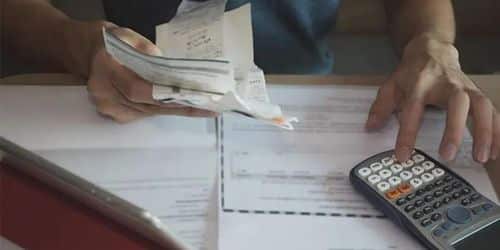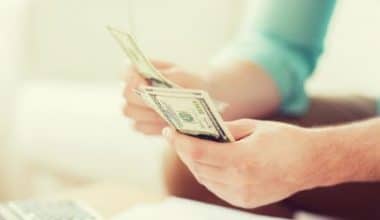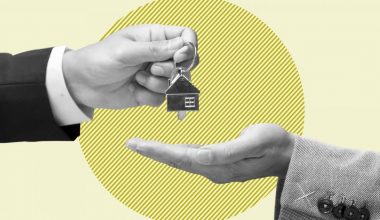Unsecured debt is a loan or line of credit that is not secured by collateral, such as a car, a home, or a financial account. Unsecured debt is commonly represented through credit cards and student loans. This category also includes some personal loans and personal lines of credit.
Although the fees on an unsecured loan are normally greater than those on a secured loan (which is secured by collateral), there is less risk involved if you fall behind on payments.
What Is Unsecured Debt?
Unsecured debt is any debt that is not secured by an asset, such as a home or car. This most typically refers to credit card debt, although it can also include personal loans and medical debt. Consumers experience less stress and fewer problems with unsecured debt because they do not risk losing an asset if they do not return the debt.
If you fall behind on unsecured debt payments, your lenders have no claim on your property and cannot seize or foreclose on your home. That is the primary distinction between unsecured and secured debt.
Unsecured debt also permits you to look into debt-relief options like debt management, debt consolidation, and debt settlement to help you pay off your debt faster and for less money.
Types of Unsecured Debt
- Loans for individuals.
- Overdrafts.
- Bills for utilities.
- Credit Cards
- Payday loans.
What are the Characteristics of Unsecured Debt?
Unsecured debts may pose less danger because nothing you own is attached to them, but they do come with some limits. We’ve broken down the important factors to consider below:
- Your possessions, such as your home or high-value personal goods, are safe. Personal property is only in danger if you fall behind on payments and the lender seeks a CCJ or you declare bankruptcy.
- Unsecured loans typically allow you to borrow up to £25,000; if you require a larger loan, such as for home renovations, you should consider a secured loan.
- Unsecured loans are easier and faster to obtain because the only vetting process is often your credit record, and there is no requirement to assess your assets.
- To receive the greatest deal on unsecured debt, you must have excellent credit. If you have a poor credit history, it may be more difficult to be accepted by a lender.
- Unsecured loans provide greater flexibility because they can be used to meet a broader range of demands. Unlike secured loans, you must describe what you intend to use them for.
- Unsecured debt has higher interest rates. This is because lenders want a higher return on their investment because there is no asset to fall back on.
Secured Debt
Secured debt is debt that is collateralized by property, such as a car or a house. If you fail to repay the loan or debt, the creditor may take the collateral instead of starting a debt collection case against you or suing you for payment.
The most prevalent sort of secured debt is consensual loans. Here, you as a borrower, agree to put up your property as collateral. Nonconsensual loans, on the other hand, come in a variety of forms. Nonconsensual debts include a money judgment filed against you by a creditor and a tax lien lodged against your property because you failed to pay your federal, state, or municipal taxes.
Secured Debt Examples
- Auto loans: These loan products are only used to fund the purchase of new and used automobiles.
- Home equity lines of credit (HELOCs): A HELOC allows you to borrow against the equity in your home. Finally, you’ll have access to a pool of cash that you can withdraw from during the draw term. This is normally 10 years. HELOC interest rates are typically variable, while some lenders offer fixed-rate programs.
- Home equity loans: Home equity loans, like HELOCs, allow you to turn a portion of your home’s equity into cash. However, you will receive the funds in a lump payment, and the interest rate will be fixed in most cases.
- Mortgages: A mortgage can be used to acquire a new property.
Secured credit cards function similarly to standard credit cards but need a deposit, typically equal to the credit limit, to be authorized. If you fail to make the minimum monthly payments, the credit card company may deduct the amount outstanding from your security deposit.
Secured debt frequently has lower interest rates since if you stop making payments, the lender can take and sell the property to recoup its losses. Creditors are more willing to negotiate terms because the loan is secured by collateral and poses less risk to the bank.
Even yet, if you suffer financial difficulties and fall behind on your loan payments, you risk losing your asset.
Unsecured Debt vs. Secured Debt
While there are some parallels between unsecured and secured debt, there are also some differences to be mindful of. The most obvious difference is the necessity for collateral, although financing conditions and credit score criteria fluctuate between the two types of debt.
Collateral Requirement
Secured debt uses the property as security to support the loan, whereas unsecured debt does not. If you choose the latter, you won’t have to worry about putting your asset at risk.
Terms of financing
Secured debt products typically have lower interest rates. You may potentially be eligible for a bigger loan limit and a longer repayment period.
For example, home loan APRs range between 3% and 4%, with payback durations of up to 30 years. Borrowers with good credit get better rates and terms because this is a secured debt guaranteed by the house as collateral.
Unsecured debt, on the other hand, such as credit cards and personal loans, is typically associated with higher interest rates and shorter maturities. These rates and terms might be especially restrictive for borrowers with a limited credit history or negative credit.
Criteria for credit scores
Secured debt may be a preferable choice for persons with bad credit or no credit history. It’s also a great resource if you’ve been through a financial setback and are seeking ways to rebuild your credit.
Responsible utilization of a secured loan can enhance your credit score, allowing you to qualify for better-unsecured loans in the future. Additionally, some secured credit cards include additional benefits such as free identity theft and credit monitoring.
Many banks will issue you a secured credit card with various interest rates if you have a low credit score or are just starting to establish your credit. The card is deposit-based; you pay a deposit to the bank, which is then applied to the credit card. You use the card and make interest-bearing payments as usual; if you miss a payment, the bank uses your deposit to cover the debt. Because banks record late or missed payments to credit bureaus, this has an impact on your credit score.
Read Also: BEST WAY TO CONSOLIDATE DEBT: Alternatives to Credit Card Debt Consolidations
Lower minimum credit scores, on the other hand, are often not permitted when applying for unsecured debt products. If you default on the financing agreement by falling behind on payments, lenders have no recourse. As a result, they want assurance that you have handled debt responsibly in the past and that you would continue to do so if they approve you for financing.
However, there is an exception to the rule: certain lenders offer subprime debt products to individuals with low credit ratings who cannot be authorized elsewhere. They may appear to be a straightforward way to meet your financing demands. However, they frequently include high-interest rates, fees, and other unfavorable loan terms, making these debt products an expensive option.
If you believe you are financially responsible enough for an unsecured credit card or a small personal loan, you can utilize them to restore your credit. Make sure you just borrow what you can comfortably repay.
How Do Lenders Assess Borrowers for Unsecured Debt?
To determine your eligibility for an unsecured loan, lenders often look for a history of on-time payments, sufficient income and assets to repay the loan, and a low debt balance compared to your overall credit limit. These elements will also influence the APR you obtain.
You will most likely need good-to-excellent credit to get the best rates on an unsecured personal loan, which means a credit score of at least 680 — though 720 or above can usually get you the best rates. If you have less-than-perfect credit, you may still be able to get an unsecured loan, but your interest rate will be higher.
If you are unable to meet the standards on your own, some lenders will let you apply with a cosigner. Lenders seek the following characteristics in particular:
#1. Credit rating
Lenders use your credit score to determine how well you manage money. The FICO scoring model is the most prevalent type of credit score among lenders, and it is determined by the following factors:
- Payment history, or the proportion of on-time payments (35%)
- The amount of your outstanding debt (30%)
- Your credit history’s length (15%)
- How frequently you have applied for fresh credit (10%)
- Whether you have a diverse portfolio of accounts (10%)
#2. DTI (debt-to-income) ratio
Your DTI shows how much you owe compared to how much you earn. Divide your monthly debt by your gross monthly income to calculate your ratio. Lower is usually better, and when accepting a loan, many lenders seek DTI rates of less than 36%.
#3. Income
Lenders will look at your monthly earnings to verify you’ll be able to meet your debt payments.
#4. Assets
Many lenders may examine your whole wealth, such as any savings, investments, or other assets, to establish your financial resilience in the event you lose your income.
What Happens If You Fail to Pay an Unsecured Debt?
If you do not pay an unsecured debt, the creditor may contact you to try to collect the debt, report the late debt to a credit reporting agency, or initiate a lawsuit against you. A nonprofit, unsecured creditor cannot generally seize any of your assets without a court order.
How Can Unsecured Creditors Obtain a Court Judgment?
A creditor must file a complaint in state or federal court and serve you with a copy in order to get a judgment. Before a judgment is entered, you have the opportunity to file an answer to the complaint and challenge the litigation.
After the Creditor Receives a Judgment, What Are Your Options?
Once a creditor secures a court judgment against you, collection actions might be taken. State law governs collection remedies and procedures largely. Among other things, a judgment creditor may:
- take your oath examination to learn about your income, other liabilities, and assets
- wage garnishment and bank account garnishment
- Real and personal property can be attached and sold.
The amount of your wages that can be garnished varies by state. Some real and personal property is also exempt from collection under state and federal law. Creditors cannot garnish or collect from assets that are protected by exemptions. Exemptions may be offered to safeguard your home equity, household furniture, pension plans, and other property from collection efforts by creditors.
Court Judgment Rule Exceptions
Without a court order, the Department of Education can garnish up to 15% of your disposable income if you fail to repay a federal student loan. State and federal tax officials may also pursue collection actions without first going to court.
Can You Get Rid of Unsecured Debt?
The process is typically carried out with the assistance of a debt settlement consultant, who is able to communicate with your creditors on your behalf and frequently negotiate decreased balances. A debt consolidation plan could be the solution for you if you are struggling under the weight of more debt than you are able to manage.
How Long Before Unsecured Debt Is Written Off?
- 6 years
The statute of limitations for the majority of debts is six years from the date on which you sent them your most recent letter or payment. Mortgage obligations have a grace period that is significantly longer. In the event that your home is repossessed while you still owe money on your mortgage, the time restriction for paying the interest on the mortgage is six years, while the time limit for paying the principal amount is twelve years.
Does Paying Off Unsecured Debt Hurt Your Credit?
Does Early Payment of a Personal Loan Have a Negative Impact on Your Credit Scores? In a nutshell, the answer is “yes”; paying off a personal loan ahead of schedule may have a momentary adverse effect on your credit scores. You could be wondering to yourself, “Isn’t it a good thing to pay off debt?” In most cases, this is the case.
How Do I Get Out of Debt With No Money?
Even if you have little money and bad credit, it is possible to get out of debt with the assistance of a debt management program or by borrowing money from a friend or family member. You should also consider applying for a debt consolidation loan for bad credit, particularly if you have some income despite not having any savings money. This is something you should look into.
Can Banks Recover Unsecured Loans?
In the case of a personal loan, which is a form of an unsecured loan, the creditors of the lender cannot demand payment of the remaining balance from the borrower’s legal heirs or other family members who are still alive. Because these loans do not need any form of collateral, the lending institution is unable to confiscate and sell any of the borrower’s assets in order to recoup the money that they are owed.
What Are the Benefits of Unsecured Debt?
In theory, unsecured loans pose a lower risk than other forms of borrowing since, in the event that you are unable to repay the debt, you will not risk losing any of your assets to satisfy the obligation. They also have the potential to offer greater flexibility than secured loans, with lenders typically offering payback terms that can range anywhere from one month to three years.
What Are the Disadvantages of an Unsecured Loan?
The reason that the interest rates on unsecured loans are typically higher than the interest rates on secured loans is that the lender is taking on a larger level of risk that the loan will not be returned. If you do not have a consistent source of income or a lengthy positive credit history, it may be challenging for you to receive an unsecured loan.
Conclusion
Whether secured or unsecured, you should only commit to a loan that you are confident you will be able to repay on time and without incurring late fees.
If you’re borrowing money to buy an item, such as a car, a secured loan will usually offer lower interest rates and better terms. If you have bad credit, a secured personal loan may be a better option because it will have a lower interest rate than an unsecured personal loan.
Fees for secured credit cards are typically higher, and credit limits are smaller, so if you qualify, an unsecured credit card may be preferable.
Unsecured Debt FAQs
What are some examples of unsecured debt?
- The majority of department store and other credit card charges
- Loans for students
- Telephone, electric, and other utility bills (except to the degree that a deposit is required)
- medical expenses
- Personal loans for which you were not needed to sign a security agreement or mortgage.
Does paying off unsecured debt hurt your credit?
Paying off a loan may not immediately enhance your credit score; in fact, your score may fall or remain unchanged.
Related Articles
- UNSECURED PERSONAL LOAN: Loan Without Collateral
- Secured Bonds: The Ultimate Guide
- CONSUMER LOANS: Definition, Types & Rates
- Capital Resources: Types and Examples
- SECURED VS UNSECURED CREDIT CARD: Comparing the Difference






